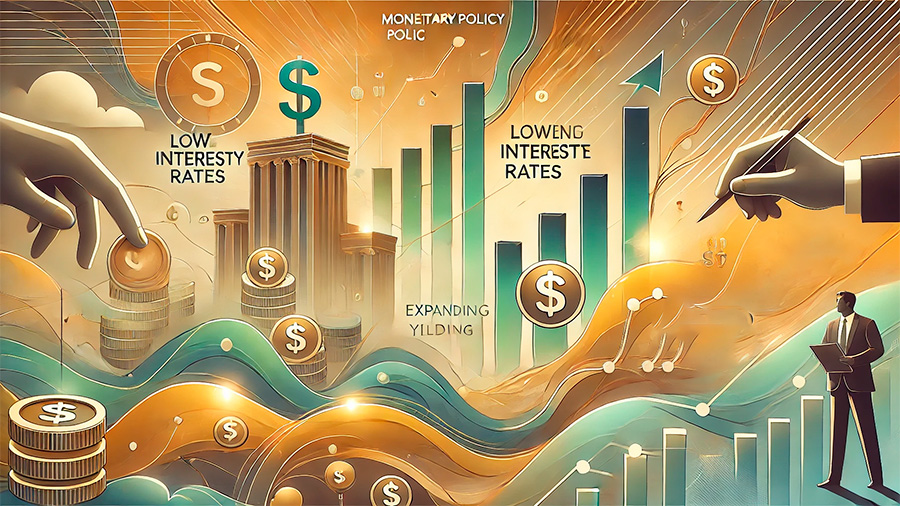
Investment Opportunities During Stimulus: How Government Policies Drive Stock Prices
Government stimulus programs have long been used as a tool to revive and stabilize economies during times of crisis or slow growth. These programs, designed to inject liquidity into markets and promote spending, often have a significant impact on company shares. For investors, understanding how stimulus measures affect stock prices can provide valuable insights and open new avenues for investment growth.
This article explores the relationship between government stimulus programs and company shares, providing investors with a clear understanding of the opportunities and risks involved.
How Government Stimulus Programs Influence Company Shares
Government stimulus programs are typically aimed at boosting economic activity by providing financial support to businesses, consumers, and industries. These measures often include direct financial aid, tax cuts, and incentives for businesses to invest or hire more workers. The influx of capital can have a direct impact on company performance and, by extension, their share prices.
1. Increased Liquidity in Markets
One of the most immediate effects of government stimulus programs is the increase in liquidity across financial markets. When governments introduce measures such as bond-buying programs or direct payments to businesses and individuals, more money enters the economy, driving up demand for goods and services. As companies see increased revenue from heightened consumer spending, their financial outlook improves, which can lead to higher share prices.
Impact on company shares:
- Stock price appreciation: As businesses experience a rise in revenue and profits due to increased demand, investors often respond by driving up the prices of company shares.
- Positive investor sentiment: Government stimulus can create a sense of optimism in the markets, encouraging investors to buy shares in companies expected to benefit from economic recovery.
2. Sector-Specific Support
In many cases, government stimulus programs target specific industries that are critical to the economy. During times of crisis, such as the COVID-19 pandemic, sectors like healthcare, travel, and manufacturing received significant financial support. This targeted assistance can provide a major boost to companies in these sectors, making their shares more attractive to investors.
Examples of sector-specific stimulus:
- Healthcare: During health crises, government funding for research, development, and medical supplies often boosts healthcare companies, leading to higher stock prices.
- Infrastructure: Stimulus packages focused on infrastructure development provide opportunities for construction, transportation, and energy companies to benefit from government contracts.

The Role of Interest Rates and Company Shares
Monetary policy, particularly interest rate decisions, plays a significant role in how government stimulus affects company shares. Central banks often lower interest rates as part of stimulus efforts to encourage borrowing and spending. These lower rates reduce the cost of capital for businesses, allowing them to invest in growth, hire more employees, and increase production.
1. Lower Borrowing Costs for Businesses
When interest rates are low, companies can borrow money more cheaply, which allows them to finance expansion projects, research and development, and other growth initiatives. As businesses grow and their earnings potential improves, investors are more likely to purchase shares, leading to an increase in stock prices.
Benefits of low interest rates for companies:
- Increased investment: Lower borrowing costs encourage companies to invest in new projects, boosting future growth potential.
- Higher profit margins: Reduced interest expenses improve profitability, making a company’s shares more attractive to investors.
2. Impact on Dividend-Yielding Stocks
For income-focused investors, lower interest rates can make dividend-paying stocks more attractive. When interest rates fall, the yields on bonds and other fixed-income securities decline, prompting investors to seek out alternatives that provide better returns. Dividend-yielding stocks often benefit from this shift, as investors look to equity markets for stable income.
Why dividend stocks gain during stimulus periods:
- Attractive yields: Dividend-paying stocks offer higher yields compared to low-interest bonds, making them more appealing to income-focused investors.
- Stable income: Companies that maintain regular dividend payments become a preferred choice for conservative investors during periods of low interest rates.
Long-Term Effects of Stimulus on Company Shares
While stimulus programs often provide an immediate boost to company shares, the long-term effects can vary depending on the nature of the stimulus and the overall economic environment. Understanding the potential risks and rewards associated with government intervention is critical for investors looking to navigate these changes.
1. Inflationary Pressures
One potential downside of prolonged government stimulus is the risk of inflation. As more money enters the economy, the purchasing power of currency can decrease, leading to higher prices for goods and services. If inflation becomes excessive, it may erode the value of company shares, particularly for businesses that struggle to pass higher costs onto consumers.
Inflation risks for investors:
- Rising costs: Companies may face higher production and labor costs, which can reduce profit margins and negatively impact stock prices.
- Interest rate hikes: To combat inflation, central banks may raise interest rates, making borrowing more expensive and potentially dampening corporate growth.
2. Market Volatility
While stimulus measures often stabilize markets in the short term, they can also introduce long-term volatility. As governments adjust their policies, investors may react unpredictably, especially when stimulus programs begin to wind down. This uncertainty can lead to fluctuations in company shares as investors reassess the economic outlook.
Managing volatility as an investor:
- Diversification: Building a diversified portfolio can help mitigate the risks associated with market volatility driven by changing stimulus policies.
- Focus on fundamentals: Investors should focus on companies with strong fundamentals that are well-positioned to weather economic fluctuations, regardless of stimulus measures.

Opportunities for Investors During Stimulus Periods
While government stimulus programs present potential risks, they also offer significant opportunities for growth-oriented investors. By identifying industries and companies that stand to benefit from stimulus measures, investors can position themselves to capitalize on market gains.
1. Investing in Growth Sectors
Government stimulus often prioritizes sectors that are crucial for long-term economic recovery and development. Investors can take advantage of this by focusing on industries such as renewable energy, healthcare, and technology, which are likely to receive sustained government support.
Growth sectors to watch:
- Renewable energy: With many governments focusing on environmental initiatives, companies involved in solar, wind, and other clean energy technologies are well-positioned for growth.
- Technology: Stimulus programs that emphasize digital transformation and innovation provide opportunities for tech companies to expand and increase their market value.
2. Diversifying With Government-Backed Securities
In addition to investing in company shares, investors can diversify their portfolios by including government-backed securities, such as treasury bonds or mortgage-backed securities (MBS), which often benefit from stimulus programs. These securities provide stability and can offer steady returns, particularly during periods of economic uncertainty.
Why government-backed securities are a good hedge:
- Stable returns: Government-backed securities provide consistent returns, even during times of market volatility.
- Risk mitigation: These securities help balance the risk associated with more volatile equity investments, offering a safer option in uncertain markets.
Conclusion
Government stimulus programs have a profound impact on company shares, creating both opportunities and risks for investors. By increasing liquidity, lowering interest rates, and providing targeted support to key industries, stimulus measures often drive up stock prices and promote economic recovery. However, investors must remain mindful of potential long-term effects, such as inflation and market volatility, when building their portfolios.
Understanding how government policies influence company shares can help investors make informed decisions, capitalize on growth opportunities, and navigate the challenges of an ever-changing market.
Calendar
| M | T | W | T | F | S | S |
|---|---|---|---|---|---|---|
| 1 | 2 | 3 | 4 | 5 | 6 | |
| 7 | 8 | 9 | 10 | 11 | 12 | 13 |
| 14 | 15 | 16 | 17 | 18 | 19 | 20 |
| 21 | 22 | 23 | 24 | 25 | 26 | 27 |
| 28 | 29 | 30 | ||||
